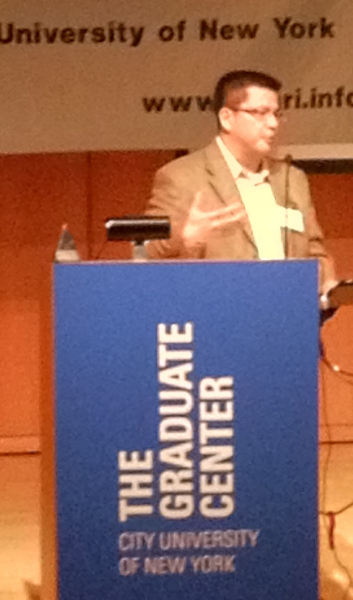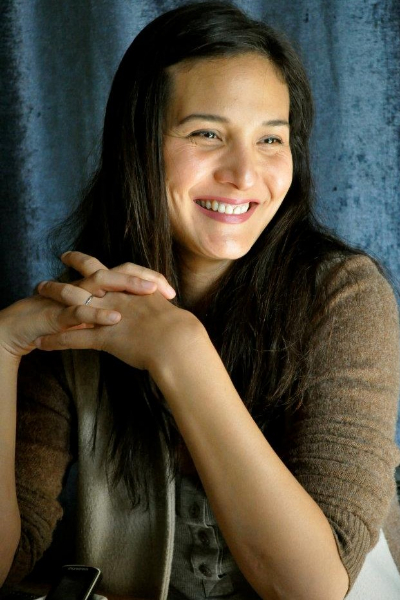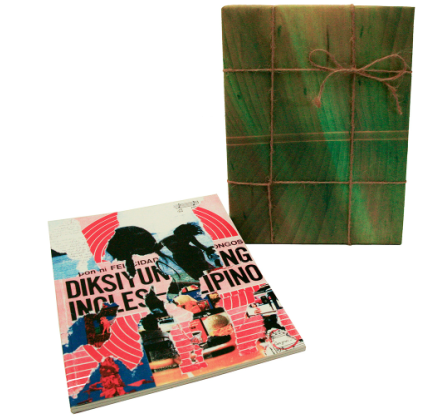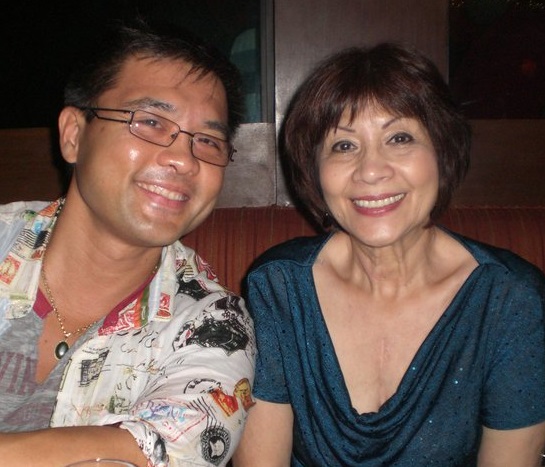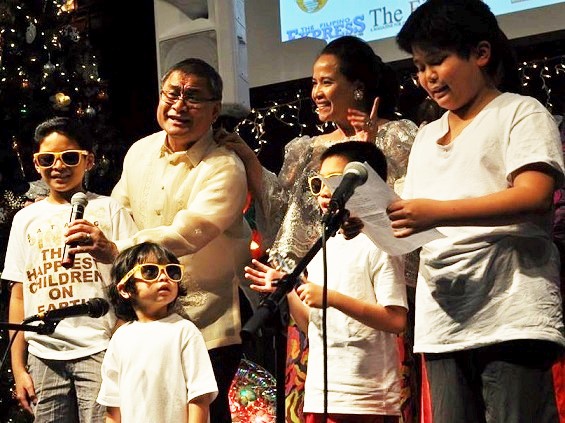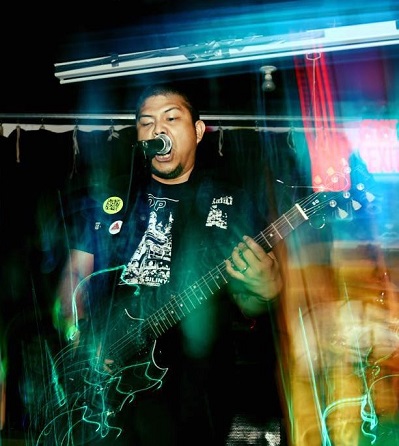Feast of the Three Kings officially concludes the season of seasons
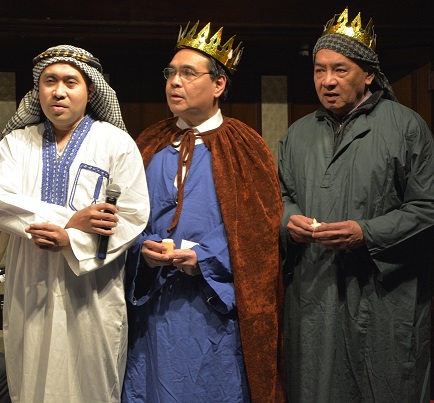
Consul General Mario de Leon, Jr. (center), Consul Bong Carino (left) and Moises Ocampo of the Philippine Mission to the UN played the Three Wise Men during a ‘Panunuluyan’ reenactment of the first family looking for an inn. The ‘Panunuluyan’ was presented at the Philippine Consulate for nine days before Christmas in place of the traditional Simbang Gabi.
In our Christian Doctrine classes as youngsters, when we were able to read stories accompanied by multi-colored illustrations of Christmas, the Three Kings’ significant role was always part of that season of seasons.
The Philippines held the reputation as one of the countries that had the longest celebration of the Christmas season. It would start on the first Sunday of Advent in the beginning of December and conclude on the sixth day of January known as the Feast of the Three Kings. But that has slowly changed since the 1960s.
Up to now, the role of the Three Kings, referred to as the “Magi,” has not left its noteworthiness on the Christmas season. In churches where the Child Jesus holds a place of honor with his family, the Magi are seen paying homage to the Infant Child on bended knees.
History takes readers to King Herod who was earlier told about the impending arrival of the ‘king of kings,’ an event that brought indescribable fear to him because it would remove him from power.
“Where is the Child who has been born king of the Jews?” was Herod’s query when the Three Kings’ presence was made known.
The Three Kings informed Herod that they were following a certain star at its rising and they were on their way to pay the newly-born king their homage.
Herod, pretending to join the welcome told the Three Kings, “Go and search diligently for the Child and when you have found him, bring me word so I may adore him and pay homage.”
The response of the Three Kings took a different direction. Their guidance came from a bright star that led them to Bethlehem, to the manger where they found the Child Jesus.
As soon as they saw the Child, the sovereigns knelt. Each one brought out their own version of presents.
Western Christian historical facts describe the origin of each member of the Magi. Melchior has been identified as the Persian scholar who brought gold as his present. Caspar (also spelled at times as Gaspar) represented the Indian scholar who was described as offering frankincense as his gift. Balthazar was called the Arabian scholar who brought myrrh, its value was compared to a rare ‘anointing oil.’
Historians call all those three gifts symbolic. After they prostrated themselves and became highly convinced that they found the Child Jesus whom they later on referred to as the Messiah, they were directed by another star to take another route so they would be away from Herod.
Herod’s dread of the Child continued to keep him aflame. He still was determined to put all newly-born male infants to death to allow himself the overall assurance that he would remain king. And he did. To avoid Herod’s campaign to do away with all newborns, the Christ Child in the company of his parents, escaped to Egypt.
Up to current times, in most countries that have observed Christian religious practices, the Feast of the Three Kings is attributed to a time when presents made their presence felt based on the arrival of the Three Kings in Bethlehem where they recognized the Child Jesus as the King of Kings.
The Feast of the Three Kings has thus been observed as one that the Christian world accepted as the beginning of gift presentations symbolic in what each of the sovereigns presented.
Spain passed on the observance of the Feast of the Three Kings when the Philippines was colonized. Spanish influence has been strongly felt because up to these days, today’s Philippine youth still continue to practice gift-giving on the Feast of the Three Kings in conclusion of the highly-awaited season that comes in their midst with the first Sunday of the final month of the year.

